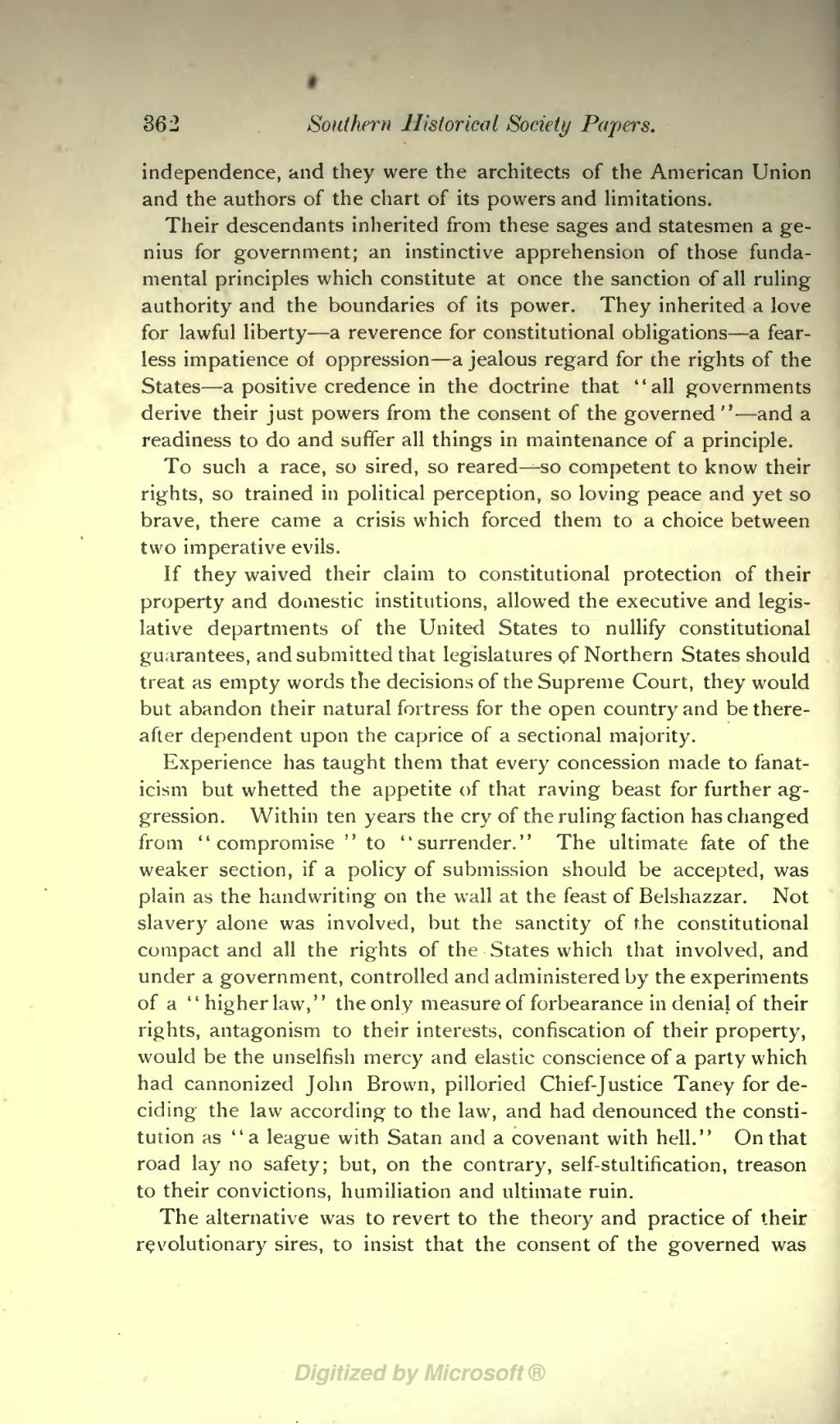362 Southern Historical Society Papers.
independence, and they were the architects of the American Union and the authors of the chart of its powers and limitations.
Their descendants inherited from these sages and statesmen a ge- nius for government; an instinctive apprehension of those funda- mental principles which constitute at once the sanction of all ruling authority and the boundaries of its power. They inherited a love for lawful liberty a reverence for constitutional obligations a fear- less impatience of oppression a jealous regard for the rights of the States a positive credence in the doctrine that "all governments derive their just powers from the consent of the governed " and a readiness to do and suffer all things in maintenance of a principle.
To such a race, so sired, so reared so competent to know their rights, so trained in political perception, so loving peace and yet so brave, there came a crisis which forced them to a choice between two imperative evils.
If they waived their claim to constitutional protection of their property and domestic institutions, allowed the executive and legis- lative departments of the United States to nullify constitutional guarantees, and submitted that legislatures of Northern States should treat as empty words the decisions of the Supreme Court, they would but abandon their natural fortress for the open country and be there- after dependent upon the caprice of a sectional majority.
Experience has taught them that every concession made to fanat- icism but whetted the appetite of that raving beast for further ag- gression. Within ten years the cry of the ruling faction has changed from "compromise " to "surrender." The ultimate fate of the weaker section, if a policy of submission should be accepted, was plain as the handwriting on the wall at the feast of Belshazzar. Not slavery alone was involved, but the sanctity of the constitutional compact and all the rights of the States which that involved, and under a government, controlled and administered by the experiments of a "higher law," the only measure of forbearance in denial of their rights, antagonism to their interests, confiscation of their property, would be the unselfish mercy and elastic conscience of a party which had cannonized John Brown, pilloried Chief-Justice Taney for de- ciding the law according to the law, and had denounced the consti- tution as " a league with Satan and a covenant with hell." On that road lay no safety; but, on the contrary, self-stultification, treason to their convictions, humiliation and ultimate ruin.
The alternative was to revert to the theory and practice of their revolutionary sires, to insist that the consent of the governed was
